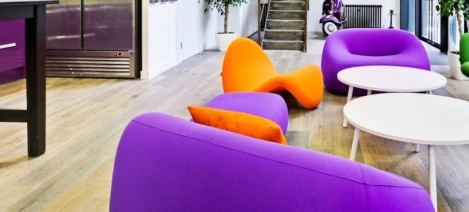May 23, 2016
Employers ignore ways that flexible working has eclipsed traditional office life 0
 A significant proportion of businesses are still not giving their employees the support they need to work remotely and flexibly, despite the fact that 72 percent of UK office workers now believe the traditional fixed workplace is no longer relevant. For the vast majority the traditional nine-to-five is already a thing of the past, with nearly two thirds (62 percent) of people already using some form of flexible working at least one day per week. On average UK workers spend 2.5 days each week working remotely. The findings claimed by ‘The End of Nine-to-Five’ report commissioned by TeamViewer suggest that, despite the increased demands and expectations of employees, nearly 2 in 5 (37 percent) UK office workers said that their company’s IT department do not encourage remote working and do not make it easy. This figure went up as the size of the organisation increased, rising to 44 percent for companies with over 500 employees.
A significant proportion of businesses are still not giving their employees the support they need to work remotely and flexibly, despite the fact that 72 percent of UK office workers now believe the traditional fixed workplace is no longer relevant. For the vast majority the traditional nine-to-five is already a thing of the past, with nearly two thirds (62 percent) of people already using some form of flexible working at least one day per week. On average UK workers spend 2.5 days each week working remotely. The findings claimed by ‘The End of Nine-to-Five’ report commissioned by TeamViewer suggest that, despite the increased demands and expectations of employees, nearly 2 in 5 (37 percent) UK office workers said that their company’s IT department do not encourage remote working and do not make it easy. This figure went up as the size of the organisation increased, rising to 44 percent for companies with over 500 employees.


































May 12, 2016
Making sense of the relentless babble about flexible working
by Mark Eltringham • Comment, Facilities management, Flexible working, Workplace design
More →